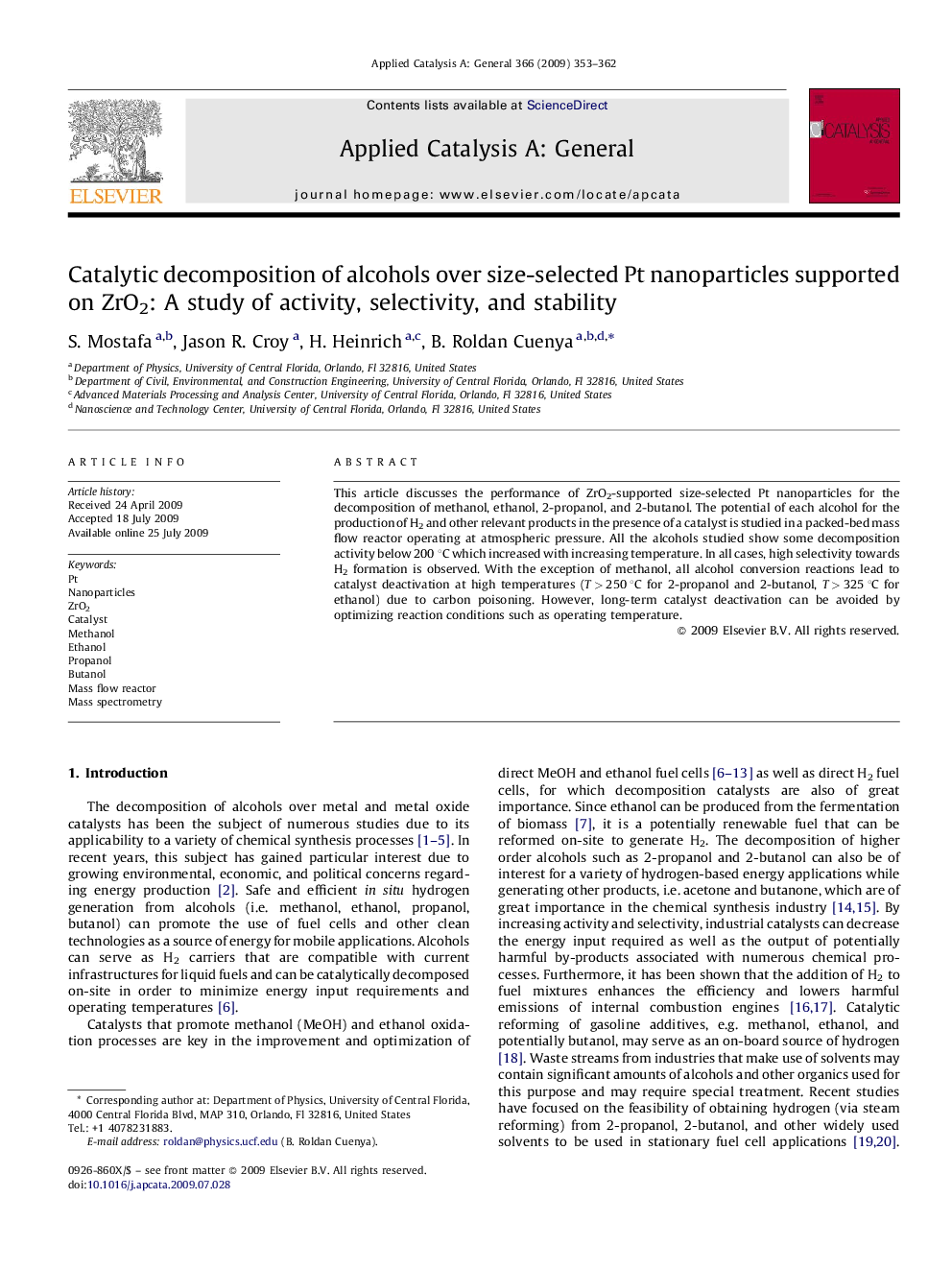| Article ID | Journal | Published Year | Pages | File Type |
|---|---|---|---|---|
| 42675 | Applied Catalysis A: General | 2009 | 10 Pages |
This article discusses the performance of ZrO2-supported size-selected Pt nanoparticles for the decomposition of methanol, ethanol, 2-propanol, and 2-butanol. The potential of each alcohol for the production of H2 and other relevant products in the presence of a catalyst is studied in a packed-bed mass flow reactor operating at atmospheric pressure. All the alcohols studied show some decomposition activity below 200 °C which increased with increasing temperature. In all cases, high selectivity towards H2 formation is observed. With the exception of methanol, all alcohol conversion reactions lead to catalyst deactivation at high temperatures (T > 250 °C for 2-propanol and 2-butanol, T > 325 °C for ethanol) due to carbon poisoning. However, long-term catalyst deactivation can be avoided by optimizing reaction conditions such as operating temperature.
Graphical abstractThis article describes H2 production by decomposition of C1–C4 alcohols over size-selected Pt-nanoparticles supported on nanocrystalline ZrO2. Alcohol conversion and H2 production were found to increase as ethanol < 2-butanol < 2-propanol < methanol between 100 °C and 400 °C. With the exception of methanol, all alcohols caused catalyst deactivation above 250 °C due to carbon-containing deposits. High hydrogen selectivities were observed for all alcohols.Figure optionsDownload full-size imageDownload as PowerPoint slide
